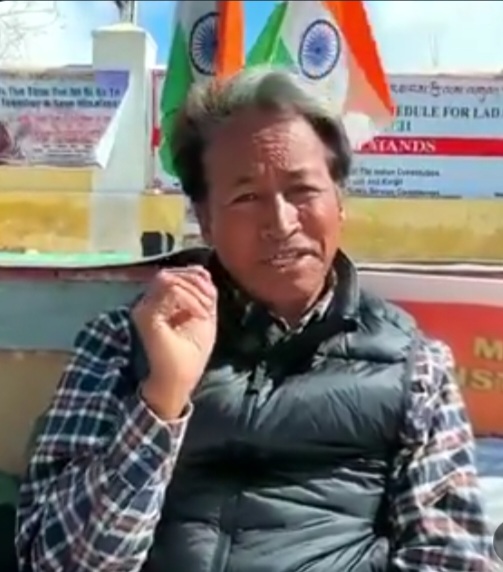Ladakhi innovator and climate activist, Sonam Wangchuk, has strongly criticized the decision of the Ladakh administration to impose Section 144 in Leh and he announced halting of Pashmina March billed for April 7.
He said it has transformed the cold desert tourist town Leh into a "khakhi garrison.
Wangchuk, known for his pioneering work and environmental advocacy, had planned a march to the Pashmina Land but canceled it due to what he perceives as an overreaction from the authorities.
In a video address on social media, Wangchuk expressed his disappointment, saying, "The government here is overreacting a lot...all the people of Ladakh, whether they are government or police employees, are with this movement because it is running on truth."
He further elaborated on the alleged harassment faced by individuals supporting the movement, stating, "Some workers were caught by the police from the site of the fast and forcibly taken to the police post...it seems that the administration itself is no longer having control over its people."
Highlighting the sensitivity of Ladakh as a border territory, Wangchuk urged the central government to address the issues raised, including protection under Schedule 6 and representation in legislature.
Supporting Wangchuk's stance, Brigadier Bakshi, a firebrand military affairs analyst said the Centre should address Ladakh's grievances promptly, especially in the context of increasing tensions with China.
He urged the government to consider the concerns of Ladakhis seriously to prevent any exploitation by external forces mainly China.
Speaking on Wangchuk's climate fast, Brigadier Bakshi stated, "The danger of China is increasing...if there is so much unhappiness among the people of Ladakh, it can turn into a national security threat."
Both Wangchuk and Brigadier Bakshi called for a balanced approach that takes into account the ecological and economic interests of Ladakh while ensuring the security and welfare of its people.
The situation in Ladakh continues to evolve as activists like Wangchuk strive to raise awareness and address the concerns of the local population in the face of growing geopolitical tensions and administrative challenges.






